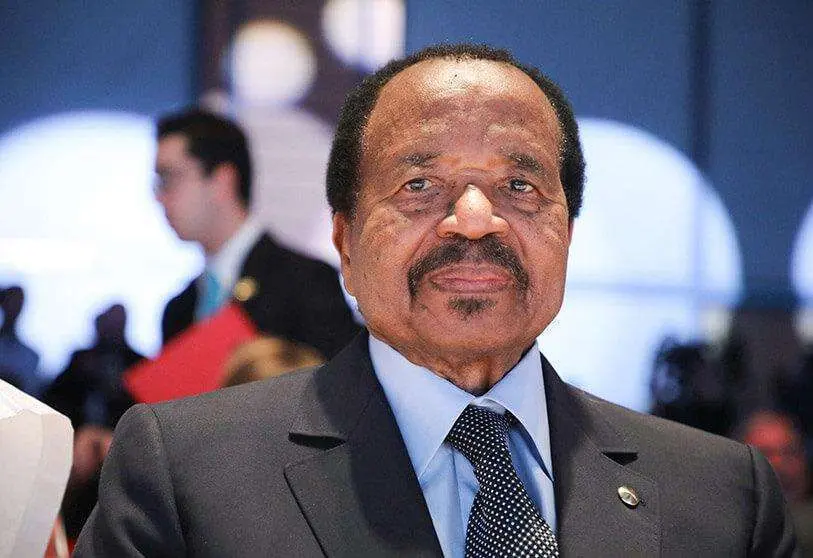Cameroon, between separatism and jihadism

Located in Central Africa and bordering Nigeria, Chad, Central African Republic, Gabon, Congo and Equatorial Guinea, Cameroon is a unitary republic with more than 25 million inhabitants. If anything characterises this country, it is its great biodiversity: from deserts and mountains to beaches and savannahs. It also has over 200 indigenous ethnic-linguistic groups and the Pidgin language (also known as Kamtok), although its official languages are English and French.

Cameroon has a strong colonial historical legacy which, to some extent, is part of the origin of the current conflicts that Cameroonian society is suffering. As Izquierdo explains (2019), this country has suffered the ravages of the rivalries of the great powers for centuries, beginning with the Berlin Conference held in the mid-nineteenth century, at which the African countries were divided among the various participating states.
The current president, Paul Biya, who has been in power for over 35 years, has had to deal with the country's separatist movements for years. The independence fighters began a series of riots at the end of 2016 in protest at the widespread abandonment of the English-speaking areas following the appointment of French judges to the courts of the English regions, which culminated in 2017 with the unilateral declaration of independence of Ambazonia, located in southwest Cameroon, by the United Front of the Ambazonia Consortium of Southern Cameroon (SCACUF). In view of this situation, the Cameroonian government used force as a method of repression and since then the country has suffered a significant escalation of violence on both sides, as Ambazonia also has armed groups, most notably the Forces for the Restoration of Ambazonia (ARF)1.

The country has also suffered from the expansion of the terrorist insurgency of Boko Haram, also known as the Islamic State in West Africa (ISWAP). This is an organisation of Jihadist ideology and considered a branch of Dáesh, whose focus of action is centred on the northeast of Nigeria. President Biya has also toughened his anti-terrorist policy and has deployed over a thousand soldiers in the border areas with Nigeria in recent years in order to curb terrorist expansion. However, the battle against Jihadism continues, especially in the north, where attacks have increased by around 400 percent in recent months2, and a few weeks ago the Cameroonian security forces murdered three alleged members of Boko Haram in the town of Malika, in the far north of the country, whose operations have been denounced for alleged abuses against the civilian population3. However, the main concern for the Cameroonian government is the challenge to independence, as Boko Haram is regarded as a cross-border threat whose elimination depends on the actions of different countries, especially the G5 Sahel (Burkina Faso, Chad, Mali, Mauritania and Niger).
All these armed conflicts, disputes, disturbances and protests have affected the Cameroonian civilian population, triggering a massive wave of emigration to neighbouring countries. Although the regional government admits about 75,000 internally displaced persons and about 21,000 refugees, the United Nations Refugee Agency (UNHCR) reports a movement of about 450,000 people4.
On Sunday 6 December last Cameroon held its first ever regional elections in an attempt to settle the English-speaking separatist crisis. In October 2018 President Biya won a seventh mandate with a large majority in the presidential elections, and on this occasion, although the results have not yet been made public, the president's party, the Democratic Movement of the Cameroon People (MDPC), is expected to win in most of the country's regions5.
In conclusion, the southward expansion of Sahelian Jihadist terrorism poses a serious threat to the international community and regional governments. Together with the independence crisis in Ambazonia and the escalation of violence, the civilian population has been greatly affected by the attacks and repression by the army and the attacks by the separatist movements. The MDPC undoubtedly faces a major challenge in the coming years and no effective solution seems in sight for any of these conflicts.
Daniel González Jiménez - Psychologist and Intelligence Analyst
Bibliography
1. Left, M. J. (2019). Cameroon: the crisis that threatens the integrity of the country. Spanish Institute of Strategic Studies (IEEE). Retrieved from https://dialnet.unirioja.es/servlet/articulo?codigo=7257610
2. Europa Press. (16 November 2020). Northern Cameroon, the favourite scene of the growing attacks by Boko Haram and ISWA on Lake Chad. Europa Press. https://www.europapress.es/internacional/noticia-norte-camerun-escenario-favorito-crecientes-ataques-boko-haram-iswa-lago-chad-20201116180450.html
3. Europa Press. (20 November 2020). Cameroon forces kill three alleged members of Boko Haram in the north of the country. Europa Press. https://www.europapress.es/internacional/noticia-fuerzas-camerun-matan-tres-presuntos-miembros-boko-haram-norte-pais-20201120183049.html
4. Riesco, S. (2018). Colonial language conflict tears Cameroon apart. RTVE. Retrieved from https://www.rtve.es/noticias/20181129/conflicto-lenguas-coloniales-desgarra-camerun/1844441.shtml
5. Journal du Cameroun. (8 December 2020). Cameroon: Results of Regional election expected latest Wednesday. Journal du Cameroun. Retrieved from https://www.journalducameroun.com/en/cameroon-results-of-regional-election-expected-latest-wednesday/








